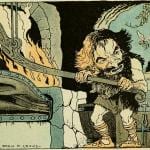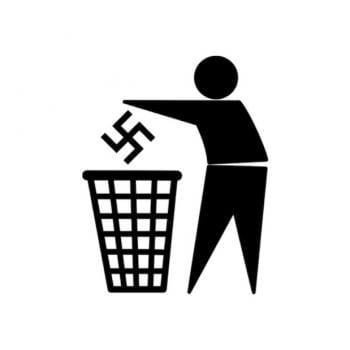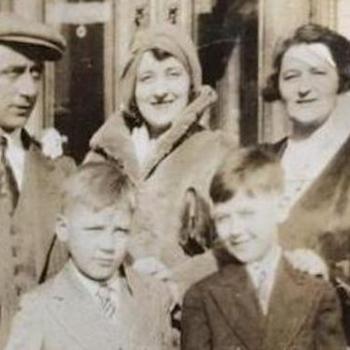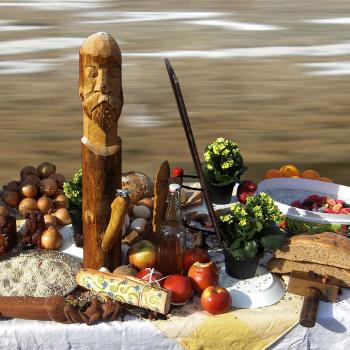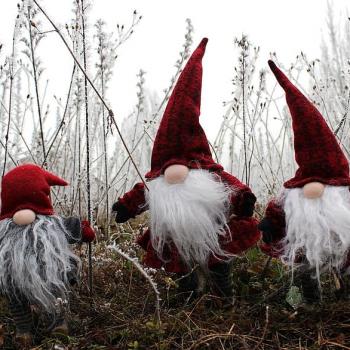We moved to West Germany in 1986, when I was three years old. The first base and town we lived in was a former SS training camp; our downstairs neighbor was a sweet old lady who knitted sweaters for me while she told my mom stories about her time as a secretary for the Nazis. Our town was small and old fashioned – every day after picking me up from the German kindergarten I attended, we’d make our rounds to the butcher shop, the produce shop, and the bakery for the things we needed for dinner. It was a lovely place nestled in the mountains, full of half timber houses and cobblestone roads. There was history there, dark history, but it was a good place to live.
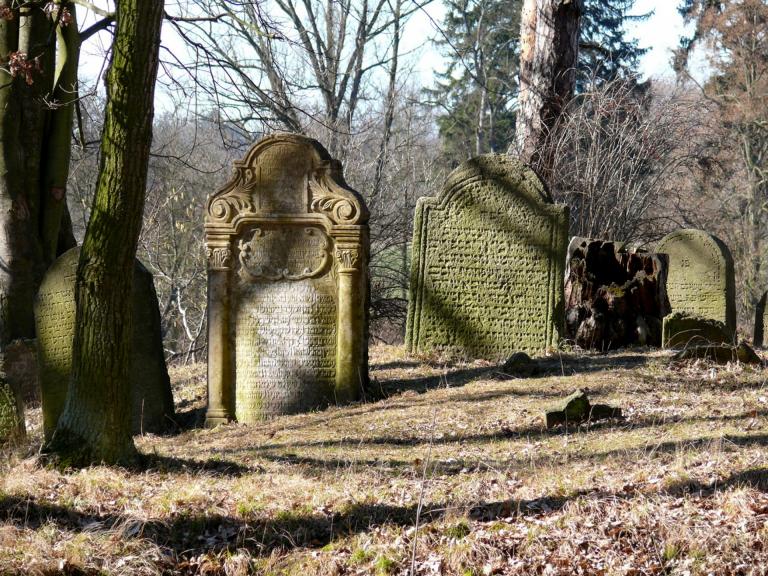
One day, when I was four, we were walking along one of the cobblestone roads when my mom stopped, looked around, and told me to crouch down and take a closer look at the road. My little clumsy toddler fingers touched faint etchings that could still be seen on the cobblestones. Mom knelt beside me, and though I was so wee and so young, I remember very clearly what she said to me as we sat in the middle of the road. “There was a war here, not that long ago,” she said. “The Nazis were in control, and they hated Jewish people. They made them rip up the gravestones from their cemeteries and pave the roads with them.” My hands were on those stones as she spoke, feeling what remained of engraved names and dates. “This is why you should never hate anyone,” she told me. “This is what hate makes people do.”
That memory, one of my most vivid, has stuck with me all these years. I think about it often, especially in the current political climate.
Growing Up Diverse
Despite my father’s reign of terror, I was incredibly privileged to grow up the way I did. Plenty were the opportunities to explore and learn about different cultures. We visited countless historical sites: the Anne Frank House, remnants of bombed landmarks, East Berlin; I grew up seeing and feeling the echoes of the Holocaust. I went to school on the Army bases where we lived, so my classmates and teachers came from all different backgrounds, all different races and religions. We had world appreciation days in Girl Scouts; each troop represented a different country. We were like little UNs as we gathered together and shared food and culture from our assigned nations.
I was raised to explore the world, learn everything I could from whoever would teach. It’s why I adapt to different environments so easily, why I pick up on mannerisms and speech patterns the way I do, how I became a mimic who drifts easily from group to group. It’s served me so well as a funeral director – there aren’t a lot of heathen or pagan funerals around here, but I’m just as comfortable placing a pall in a Catholic Mass as I am showing the eldest son of a Hindu family how to ignite the cremation retort. I know how lucky I am to have this kind of upbringing. Not enough people can boast of being raised in a world of diversity in which the concept of “other” was foreign.
So imagine my despair to see my fellow countrymen drawing lines and building walls, claiming racial superiority, religious superiority, cultural superiority. Can you fathom how much it pains me to see my religion and my gods twisted into symbols of hate?
Many religions have their own xenophobic sect: Christians are ashamed of the Klan and Westboro Baptist Church, Muslims worry about jihadists, and in mainstream media, Odinists are portrayed as Nazis. Because of Hitler’s fascination with Nordic mythology and mysticism, some white supremacist groups call themselves Odinists. Neo-Nazis are creeping into Asatru communities. Valknuts are tattooed on their bodies alongside swastikas. They wage war on people who aren’t white, using the names of our gods to justify their hate. “Folkish” sects think that the only people who have the right to honor our gods are white people who have Nordic or Germanic ancestry.
They are the people my mother warned me about.
I condemn bigots the way I condemn any extremist: their views and their actions are based on the fear of “other.” People like this, they hate and terrorize anyone who isn’t like them. They, like all extremists, have such warped and narrow viewpoints that they completely miss the point of the religion they’re using to wage their wars.
Gods Don’t Discriminate, Why Should We?
The gods I know, the gods to whom I’ve dedicated most of my life to, are beings who value wisdom, knowledge, and honor above all else, and they use that wisdom to defend and protect the realms. How can knowledge and learning occur when 99% of the world’s people and cultures are excluded? Odhinn is so hungry for knowledge that I can’t possibly see him turning anyone away from whom he could learn, or anyone who could contribute to his own agenda. There is strength in diversity, and trust me when I say the gods want all the strength they can get to protect the worlds they love. The very idea of turning someone away – condemning them – because they didn’t grow up eating lutefisk baffles me.
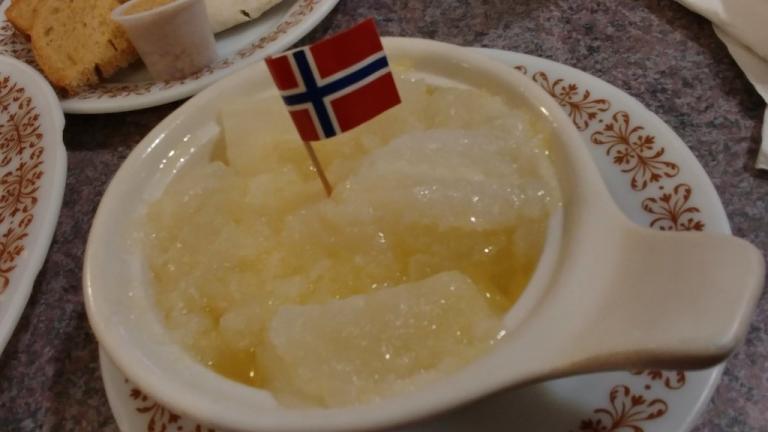
“Lutefisk” by jimmywayne is licensed under CC BY-NC-ND 2.0
I don’t hate extremists, nor do I fear them. I’m worried because they’re growing bolder, gaining more traction, and people who have been “othered” are in incredibly real danger. Heathenry is about family and community, and family isn’t limited to bloodlines. When we come together, we are family, and we look out for and help one another regardless of appearance and background. No one can survive in this world alone. We have to support each other or else we’re only destroying ourselves. We have to fight the violence and the fear and the hate. We have to build alliances and friendships and cooperate with each other, which is so much easier than waging war against each other. Why then is it so impossible to make into reality?
I had to grow up very quickly. But I still feel so naive. I grew up in a big world, full of diversity. There wasn’t much “us and them,” there was just “us.” There’s enough room in the universe for all gods, all people. I grew up seeing what hate can do. I don’t want to see it continue. We can’t see it continue.
Protect, Don’t Divide
I worry about my friends and people in my country who don’t fit the narrow traditional WASP model. They face violence and hatred and attacks the likes of which I can’t pretend to imagine. I’m angry that extremists and bigots feel empowered enough to act. And I’m heartbroken that to the mainstream, my religion is a symbol of racism.
I originally wrote this in response to the murders at the Tree of Life Synagogue in 2018. Since then there’s been a devastating uptick in hate crimes. If you’re not white, straight, cis, and utterly, conventionally mainstream, you’re at risk of facing the wrath of the intolerant. The racists in the heathen community are as much of a concern as the KKK is to Christians. I’d even wager that bigotry in heathenry is a bigger concern because our religion isn’t as widely known as Christianity, so when a Mjolnir pendant is visible in a gunman’s mugshot, the public learns to fear us. Our sacred symbols are being associated with intolerance and bigotry. As one who was raised with the old gods, I’m baffled and disgusted by such atrocities. In recent days, I think more and more about that afternoon crouched on the cobblestone street. “This is why you should never hate,” she said. “This is what hate makes people do.”
Too many gravestones in too many communities are being erected because of hate. Because that’s what hate makes people do.
We can’t stand the hatred any longer. If we don’t stand for each other, we’ll miss out on all of the incredible stories, traditions, and knowledge the world has to offer.
We have to be better than what we are.


